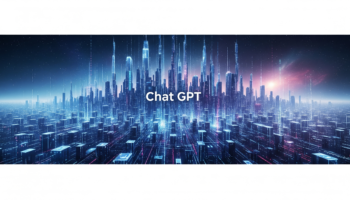If you did not receive the call or text you expected today and live in the United States, it may not be your fault. AT&T, as well as probably the other two major carriers in the United States, T-Mobile and Verizon, experienced an hours-long outage on Thursday, which is still occurring as of this writing.
And by outage, we mean no cell service at all for tens of thousands of consumers, primarily AT&T subscribers, across many states. I found out about it early this morning through a text from a television news network. The producer inquired if I had heard about the widespread network outage. I hadn’t, and I joked that Verizon was unaffected because we were communicating and texting on their network.
Following the conversation, I launched DownDetector, a useful online tool for determining the current health of practically any online or network service. It does not connect to these networks and instead relies on real-time client reports. Nonetheless, DownDetector painted an unsettling picture. At at 4 a.m. ET, all of the main networks experienced a significant increase in outage reports. That spread to smaller networks, which use the big guys’ network infrastructure and were also receiving outage reports.
As I browsed the AT&T, Verizon, and T-Mobile websites, I observed that there were no warnings, only advertisements for smartphone bargains.
I went to social media, where major corporations like AT&T and Verizon frequently interact directly with customers. There was nothing on X (previously Twitter), even in the replies section. Just more positive commentary about their networks, and on Verizon, a thread questioning if Beyonce could break the network (a leftover from her Super Bowl 58 commercial).
I posted something on X to measure the scope of the problem, and the quantity of responses surprised me.
It would be hours before any of the major networks came forward to address the issues. T-Mobile initially said that their network was in good working order. Verizon eventually responded with a similar response. However, I noted that both Verizon and AT&T had begun to respond to customer concerns about X, indicating that there were at least some issues.
Finally, AT&T provided me this formal statement:
“Some of our clients are experiencing wireless service outages this morning. We are working rapidly to restore their service. We recommend you to use Wi-Fi calling while service is restored.”
The “some” component sounded like wishful thinking, given that certain states, such as Texas, appeared to have lost virtually all AT&T service.
Verizon’s reply raised an issue that I had not before considered. A representative informed me that Verizon’s network is operational regularly. Some users encountered problems this morning when calling or messaging with clients served by another carrier. We will continue to watch the situation.”
What the carrier meant was that when a large network, such as AT&T, goes down, it makes it more difficult for other networks to function, therefore calls from Verizon and T-Mobile to AT&T users were also failing. It’s safe to think that Verizon and T-Mobile consumers may register that as their own network breakdown, because there would be no a means for them to learn about AT&T’s troubles.
So, what happened?
Still, the lack of information and explanation has led to some crazy speculation. Customers initially compared the outage to the current Julia Roberts apocalyptic film Leave the World Behind, in which all networks go down as part of the plot.
However, there is no indication that this is a cyberattack.
Some have proposed the possibility of a solar flare. NASA did detect a pair of strong ones in the recent 24 hours, and such flares are known to interrupt communications. However, the length of this outage contradicts that possibility.
Perhaps it is a hardware issue. Perhaps not.
While I understand that AT&T would prefer to do a post-mortem before revealing what caused the Big Outage of 2024, I don’t believe they can wait that long. These providers have already taken much too long to recognize the outage, and in today’s conspiracy theory climate, they cannot afford to keep us in the dark for hours.
Long-term, this may serve as a reminder that our cellular infrastructure is not as robust as we believe it should be. After many of us awoke to find our networks down, AT&T received an equally disturbing wake-up call.






